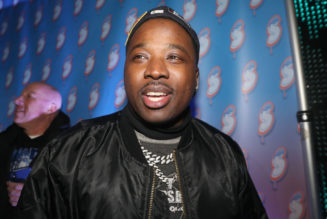When Southern Methodist University voice professor Barbara Hill Moore first told her husband of her plan to travel around South Africa in search of a student for her voice studio, he was more than concerned.
“He was adamant. He said, ‘No, this is not the time, and no, I am not going with you,’” Hill Moore remembered.
LeAndrew Moore, seeing in his wife a combination of naiveté and what Hill Moore later admitted was “crazy American entitlement,” did not mince words.
“He was convinced that if I went there thinking that people would be respectful, or that they would listen to me … they would just wipe me off the face of the earth,” she said.
She went anyway. Alone.
That was in 2000. South Africa’s democracy was still nascent. It had been only six years since the first democratic election had shifted power from the country’s small white minority to its overwhelming black majority. Nelson Mandela, freed after 27 years of political imprisonment, had been elected the first Black president. Apartheid, the race-centric form of government that denied full citizenship to Black and mixed-race populations, had been defeated, but the country was still in the throes of radical social and political change. Some white resistance still loomed, and the relationship between races was fraught. The jury was still out on how the “new South Africa” would fare.
But the family of a white South African student in the U.S. had convinced Hill Moore that she would not only be safe, but welcomed.
They were right. Hill Moore found a generation of learners and artists. Buoyed by new freedoms, access to education and previously unimaginable opportunities, many talented Black South Africans were drawn to her teaching and to the opportunity to develop their talent through studying classical music abroad.
SMU’s only full-time African American voice professor established a trans-Atlantic connection that has lasted as long as the reimagined nation where she planted it.
“I went from place to place, giving lessons to kids in churches, high schools, community centers, universities,” she remembered. “I went everywhere that year.”
Three of those students followed her back to Dallas. Dozens more followed. Over the past two decades, with support from the SMU Meadows School of the Arts and her own Barbara Hill Moore and Bruce R. Foote Foundation, she has brought 28 voice students to SMU from South Africa. Nearly all have gone on to successful music careers, either on the concert stages or at universities around the world.
And while many travel the world singing and teaching, others take their training back to South Africa, passing on their knowledge to coming generations. Many of Hill Moore’s former students are now colleagues, and nearly every university music department in every major South African city has someone who has studied with her at SMU.
Harmony
Hill Moore is the founder and executive director of SMU in South Africa, part of SMU’s study abroad program, which began in 2011, and her husband is now the assistant director. Together, they have made the 9,000-mile two-day trip to South Africa more than 20 times since 2001, sometimes twice in one year. Even now at 80, Hill Moore still makes the trip.
What began as a recruitment tool has evolved into a musical collaboration between two continents. SMU in South Africa not only finds talent to support through scholarships, but also mounts collaborative productions with music departments at universities in cities such as Port Elizabeth, Cape Town, KwaZulu-Natal, Pretoria, Stellenbosch, Johannesburg. Each year since 2011, SMU in South Africa’s summer program has culminated in a production, normally a Broadway show, for local South Africans.
This past June marked the post-pandemic return of SMU in South Africa, as COVID-19 halted the program from 2020 through 2022. Fourteen students and seven faculty traveled to Port Elizabeth (now called Gqeberha), close to where Mandela was born, for a five-week residency at Nelson Mandela University. Dallas students bonded, socialized and collaborated with 28 students and two dancers from NMU to perform a production of the Rodgers and Hammerstein musical, Oklahoma!
But an added component took the experience beyond music. Students took classes in human rights with Brad Klein, SMU associate professor of the human rights program. While Hill Moore’s voice students joined Klein’s daily classes, his human rights students were enlisted to fill out the Oklahoma! cast as chorus members, actors, dancers and supernumeraries.
Crescendo
One of the lives changed by this partnership was Njabulo Mthimkhulu’s.
When Hill Moore made that first trip, Lionel van Zyl was a voice lecturer at NMU with a number of talented students. He heard that an American voice professor was in the country in search of one talented singer to bring to America, and he insisted on meeting her. Later, when van Zyl retired, he was succeeded by Mthimkhulu, a baritone and a native of Durban who graduated from SMU Meadows’ Master’s Program and became the first Black instructor to hold the position.
Lionel Mkwanazi is Mthimkhulu’s half brother, a tenor who had been one of the first recruited by Hill Moore in 2000. Mthimkhulu was studying at the University of Cape Town when Hill Moore heard him and she and Mkwanazi suggested he consider a graduate degree at SMU in 2010.
“It was the best decision I’ve ever made,” Mthimkhulu said.
Mthimkhulu is the son of a brick layer and domestic worker, both fine singers with a passion for South Africa’s strong tradition of competitive choral ensembles, singing traditional tribal songs mixed with Western Christian choral music. Often, it was the only option for aspiring singers.
A young teen in the early ‘90s, Mthimkhulu was old enough to understand prevailing social conditions. His parents could not vote. Higher education was mostly inaccessible for Blacks. And the likelihood of attaining more than subsistence work was nil. At the time, his hope was “just to make a living.”
“The education we were getting at the time did not prepare us for university,” he said, in gentle Zulu-accented English. “The girls would learn how to bake, and for us, we were outside gardening, learning how to keep the flowers looking nice.”
But Mthimkhulu had inherited his parents’ musical talent. And when the “new South Africa” emerged in 1994, suddenly his future looked brighter.
“Luckily,” he said, “I had a voice.”
At SMU, he excelled, getting a master’s degree and performing recitals and in Dallas Opera productions before returning to South Africa to teach. His full circle moment was complete as he joined his own students and Hill Moore’s current group in the 2023 production of Oklahoma!
It is a story repeated over and over since Hill Moore’s first journey to the continent.
Hill Moore “has shown students that there is a different life that they can have, especially in academia,” said Alethea de Villiers, former head of the music department at NMU. “Even in this department, you find that it is very Eurocentric — so many white lecturers — and often when a person of color is appointed, it’s usually in ethnomusicology, not in mainstream opera.”
A mixed-race South African once subject to apartheid discrimination as “colored,” de Villiers understands the need for diversity at universities long after the 1994 change in government. Now, she says, Black students are prepared to assume those positions of authority and leadership.
“They are learning that they are not limited to choir and choral competitions. They see that there is more to it, and that they can be connected to a bigger world.”
Hill Moore’s vision for her students often exceeded their own. “Interestingly, some of the most talented students were singing just because it was something they liked to do,” Hill Moore said. “But I could envision careers for most of them, which was a shocking thing.”
Coda
As the 30th anniversary of the “new South Africa” approaches in 2024, programs such as Hill Moore’s have changed the face of music in South Africa, especially in music education. Voices once muted are now reverberant, not just in the U. S. and South Africa but throughout the music capitals of Europe and around the world. Talented South African singers now see unlimited possibilities.
“Prof [Hill Moore] did a wonderful thing,” said Mthimkhulu. “It’s a wonderful program. I don’t know how, but someday, someone should say ‘thank you.’”
Rosalyn Story is an author, freelance journalist and member of the Fort Worth Symphony Orchestra. Her latest book, “Sing Her Name,” is inspired by the life of 19th century black classical singer Sissieretta Jones. She wrote this column for The Dallas Morning News.
We welcome your thoughts in a letter to the editor. See the guidelines and submit your letter here. If you have problems with the form, you can submit via email at letters@dallasnews.com










